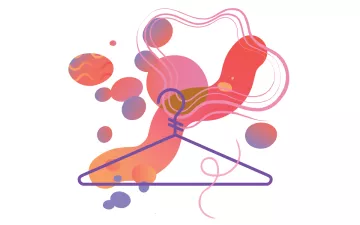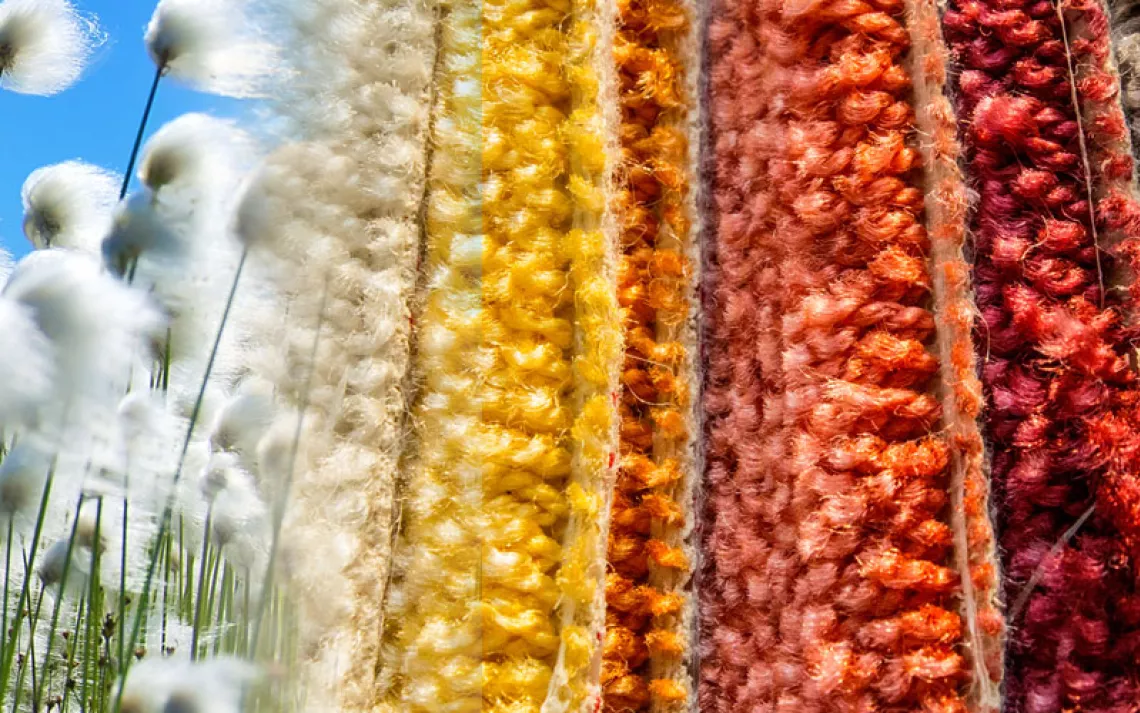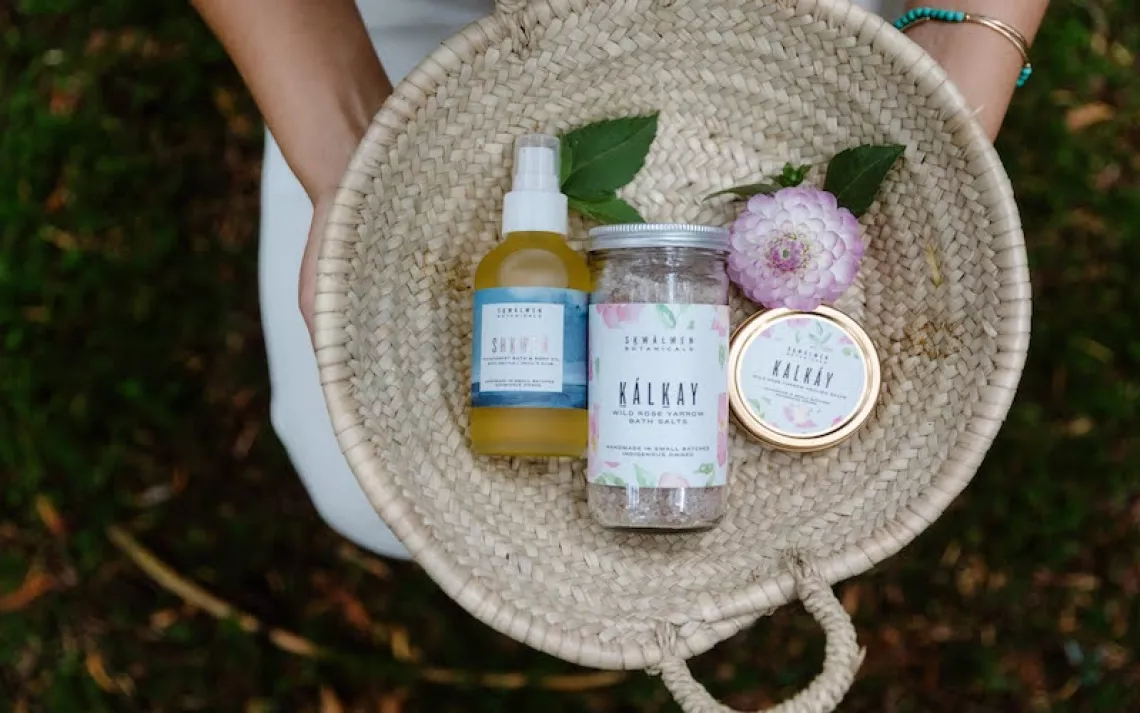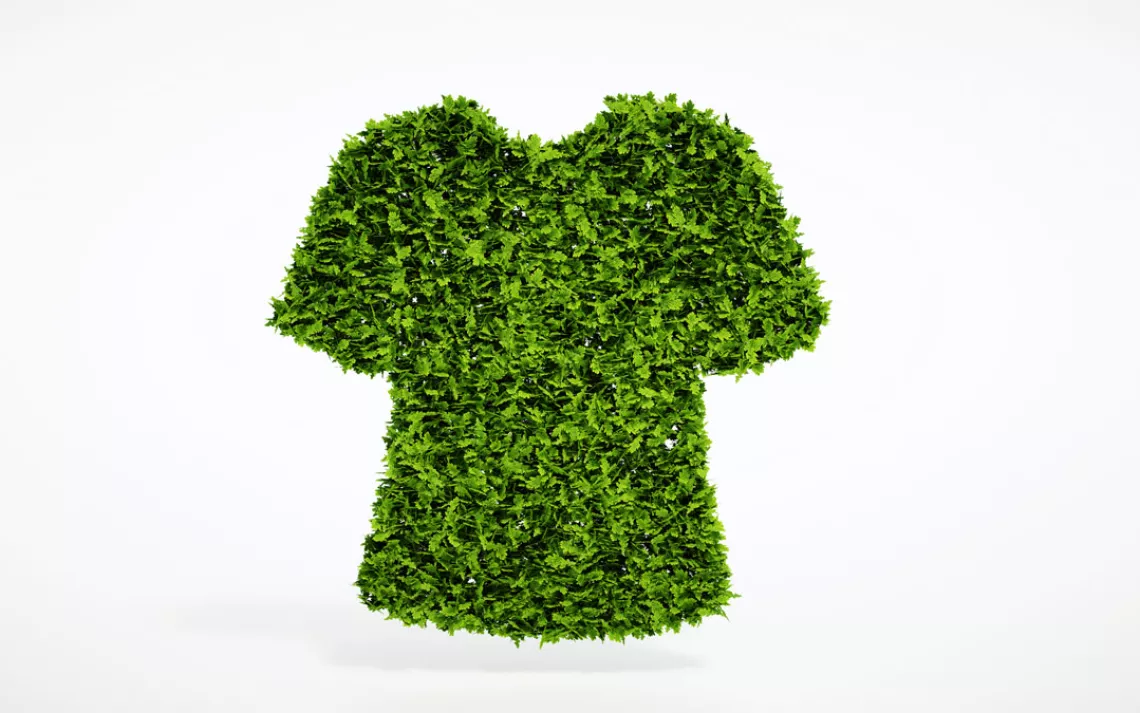How to Find the Greenest, Least Toxic Textiles
Here's what you need to know about "compostable" textiles, ecolabels, and more

Fashionable garments and linens marketed as "natural" or "sustainable" may not be as safe for you or the planet as they seem. In fact, many of the most common textiles we buy—clothes, fabrics, furniture, and yarns, even those advertised as eco-friendly—are treated with any number of the up to 350,000 dyes, polymers, and other chemical substances registered for use worldwide. Some of these chemicals help create water-resistant, antistatic, antimicrobial finishes that make textiles durable. But there's a trade-off: Most of these chemicals have not been tested for safety, and many have been linked to harmful effects on the environment and human health.
The good news is that we don't have to trade in a safer world for textile longevity—we now have locally grown, plant-dyed, and less-toxic options.

A Word About Greenwashing
Clothing labels are misleading. A study by the Circle Economy Foundation of more than 10,000 garments found that 41 percent of their tags did not accurately represent their composition (many underestimated or overestimated how much cotton those clothes contained). Meanwhile, most labels have zero information about the potentially harmful chemicals clothes were dyed or treated with. The reason is hard to believe, but it's true: There are no laws that require manufacturers to do this.
What about companies that market their products as natural or sustainable? Often they base these claims on the fact that the products were made with viscose fabric, which is sourced from bamboo, eucalyptus, and other trees. Yay, made from nature! But not so fast. Viscose (sometimes called banana or bamboo silk, rayon, Lyocell, or ramie) is actually semisynthetic. And even if it's made from trees, during the manufacturing process a product could have been treated with toxic chemicals linked to negative health impacts—including formaldehyde, bisphenol A (BPA), phthalates, and silicone. Clothes sold as "sustainable" can be blended with stretchy elastane (also found in elastic bands, spandex, and Lycra), which is made from fossil fuels and will not biodegrade.
Ecolabels Don't Cut It
Ecolabels are supposed to tell you at a glance whether a product was made with the planet in mind. The most common certifications are Oeko-Tex and Global Organic Textile Standard (GOTS). Both are useful, but they are not perfect. Products with the Oeko-Tex label still might have been treated with PFAS—"forever chemicals." And some dyes certified under GOTS are synthetically derived from petroleum.
Compostable Textiles?
Recycling textiles into other textiles is more sustainable than trying to compost them. Some brands claim that their products are biodegradable, but there is no regulatory process in place to verify those claims. To be compostable, a garment would have to be 100 percent undyed, color-grown (meaning the colors come from the natural pigments found in cotton), or plant-dyed; untreated with chemicals; and woven with nonsynthetic thread and no elastane. That's too high a bar for most manufacturers.

Clothes That Measure Up
You don't need harsh chemicals to keep your clothes and linens from coming apart at the seams. Just check the quality of items before buying and make sure they are thick enough to last, according to Kat Quigley, the founder of Sustain by Kat—a company that creates garments made from 100 percent natural materials.
Other companies selling clothes, linens, and sewing supplies that meet my laundry list of criteria include Maiwa, Aizome, and Ichcha. Another brand called Aya offers a collection of plant-dyed fashion, and Conscious Clothing sells items that make use of FoxFibre color-grown cotton. For your feet, Mukishoes offers some plant-dyed, natural rubber shoes. A worldwide affiliate group called Fibershed lists where to find locally made textiles.
Do Your Part
Ask Oeko-Tex and GOTS to stop certifying textiles with toxic chemicals harmful to the environment and human health. More important, write a letter to your elected representative asking them to support new laws and regulations that keep toxic chemicals out of the textile manufacturing process. You can also support advocacy groups like Fashion FWD and Safer States, which are working to advance those same goals.
Even companies that get it right might still use wasteful single-use plastic packaging in the store or via online delivery. Ask those sellers to ditch the plastic.
 The Magazine of The Sierra Club
The Magazine of The Sierra Club



